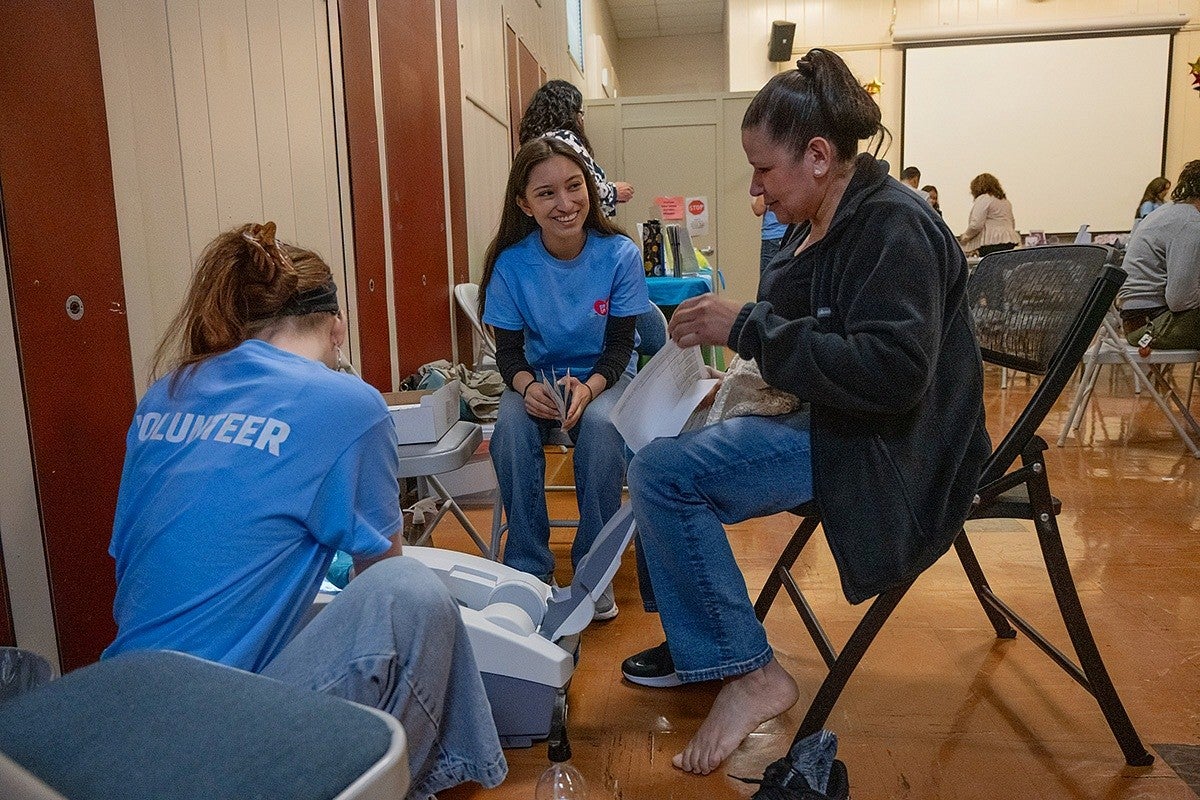
Understanding the brain to understand the world
Cinthia Muñiz Sanchez comes from a home where memories are marked by taking care of others.
Her mother has an autoimmune disease called Sjögren’s syndrome, an affliction that causes the body to attack the glands that produce moisture, particularly in the eyes and mouth.
Muñiz Sanchez can’t recall when her mom first got sick, and her family didn’t know what she was dealing with until years later. Taking care of her mom and the rest of her family became second nature. “It was my normal life,” she says.
In high school, the inquisitive Muñiz Sanchez thought a lot about the human brain — “to try and hack it in some way so it would reset and function the way it was supposed to,” she recalls thinking.
When she arrived at the Clark Honors College as a first-year student, she knew she wanted to focus on that area and cellular research. “I thought maybe knowing how to deal with some biochemistry would (allow me to) be able to find something that could help her,” Muñiz Sanchez says. “Now that I’ve finished my degree, I understand that things are much more complicated than that.”
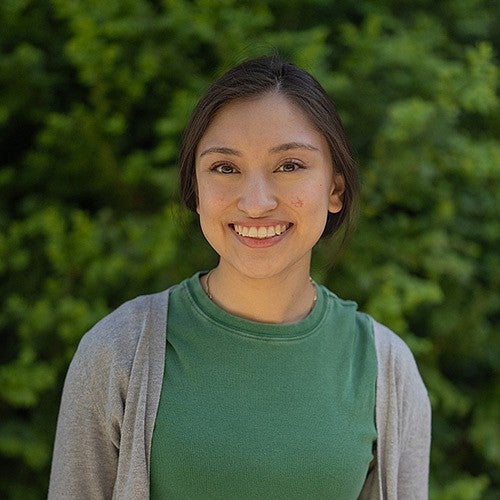
Cinthia Muñiz Sanchez
Major: Neuroscience
Minor: Chemistry
Hometown: Juárez, Chihuahua, Mexico
Coffee or tea? I’d like to be a tea person, but honestly, I’m a coffee person because it’s more convenient.
Song on repeat? “Stonecutters” by DOPE LEMON
Favorite experience from the CHC? Thesis Prospectus really helped me enhance my communication skills — it was really exciting to be able to help people understand my research.
This summer, I can’t wait for: Seeking work as a medical assistant for the El Paso Children’s Hospital in Texas, and being close to family again.
Thesis title: “Brain Activity During Movement Stopping: Parkinson's Disease vs. Controls”
Advice for incoming first years: Get involved with everything and say yes to everything. You never know what you’ll take away from every new experience.
I’m grateful for: Nicki Swann, my mentor in my lab. She’s been a blessing in helping me get scholarships I didn’t even know I could apply to, and really helped me grow in the academic field.
Earning a degree in neuroscience with a minor in chemistry has opened up a way for her to help others understand and improve their medical conditions when it comes to the brain. Her thesis, “Brain Activity During Movement Stopping: Parkinson’s Disease vs. Healthy Control Participants,” focuses on understanding the impacts in everyday life for patients with the second most common neurodegenerative disease worldwide.
Muñiz Sanchez is the oldest of three girls. Her large, extended family in Ciudad Juárez, Mexico is very close. Growing up, she was the first out of bed in the morning. She’d wake up early to pack lunch for herself and her sisters, get them ready for school, and let their mom know they were leaving. “And also to make her breakfast,” Muñiz Sanchez recalls. “There were some days she just couldn’t stand up from bed.”
Now young adults, her sisters will also be in the U.S. for college. One is finishing high school and determining her next educational steps; the other currently attends the University of Pennsylvania. “I want to one day live with them and have a family where all of us can be together,” Muñiz Sanchez says.
Muñiz Sanchez has further motivation to study medicine that stems from the experiences of other family members. She has a cousin who is autistic and a grandfather who suffered from Parkinson’s disease and Alzheimer’s disease.
“The pathologies related to the brain, I feel like that has been present in my family,” she says. “So, in some way, I’ve always been around it. Maybe understanding the brain would have made me feel more comfortable with what was going around in my life.”
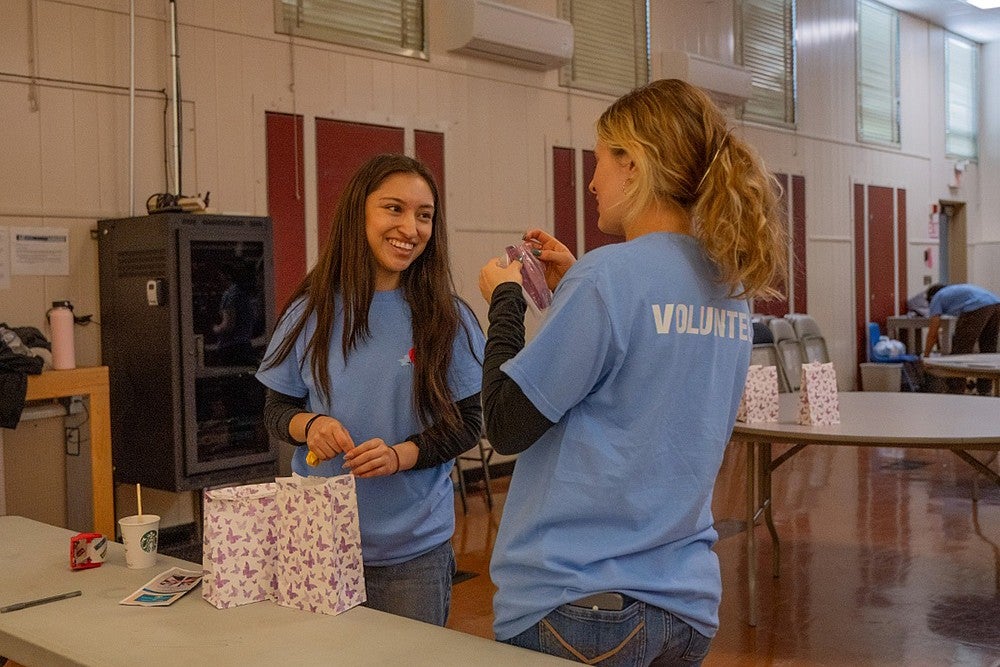
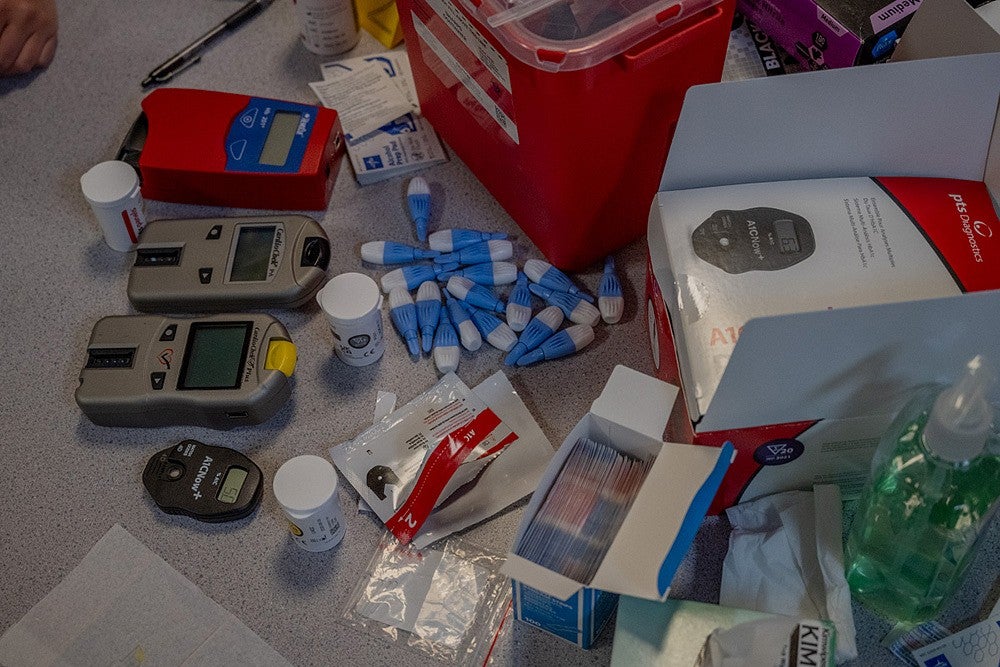
In her neurology research as a Knight Campus Undergraduate Research scholar in the Swann lab, she has had the opportunity to use an electroencephalogram. Known as an EEG, the test measures and records electrical activity in the brain. She collects data on the brain wave patterns patients exhibit at the scalp level when they are given a signal to stop a continuous task, such as circular hand movements.
She compared the brain activity in Parkinson’s patients to others who have normal brain activity levels. Dopamine replacement drugs can improve the condition of motor control for Parkinson’s patients, and Muñiz has been looking into their effect on cognitive function.
“In general, honestly, it was wanting to learn how the brain works. How is it that my brain is controlling” everything, she says. “If maybe I can find something that could’ve helped (my mom), or something to explain why my grandparent was behaving the way he was, that would’ve been interesting.”
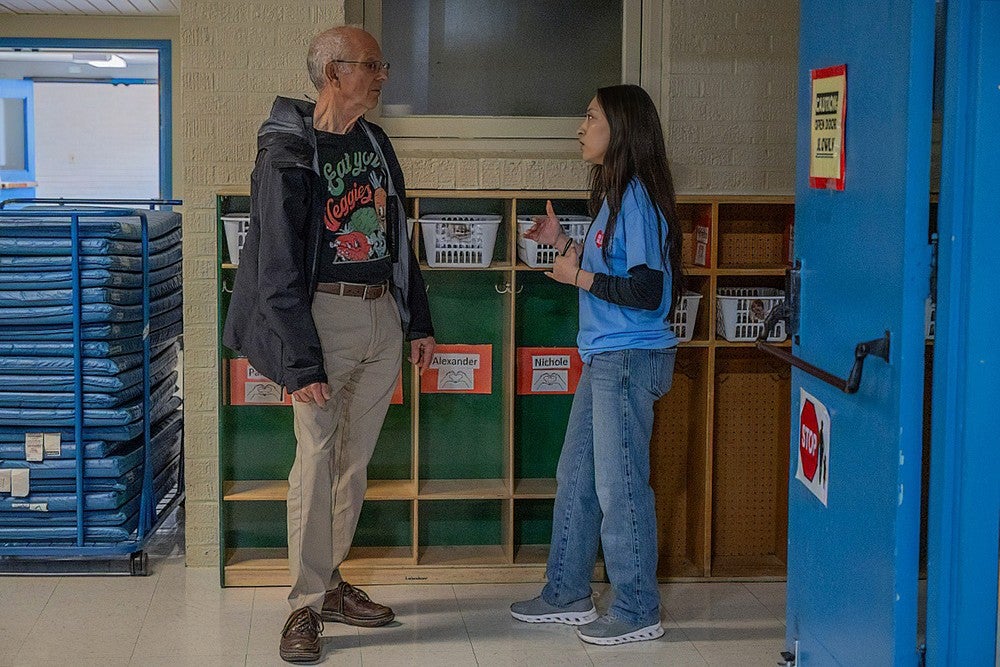
Clark Honors College senior instructor Nicole Dudukovic, who serves as director of the UO’s neuroscience major and was on Muñiz Sanchez’s thesis committee, notes that “EEG analysis is completely impressive for an undergrad to be doing.”
Muñiz Sanchez has “the intellect and knowledge base that’s needed, but also has these people skills,” Dudukovic says. “It’s the sort of warmth and empathy of somebody who really wants to care for others.”
Muñiz Sanchez spent much of her time running clinical trials in the lab and interacting with patients through volunteer work. Last month, she organized the annual “Día de Salud” event, where pre-medical students at UO volunteer their services to low-income and uninsured communities in Eugene.
“She strikes me as one of these deep thinkers with very, very deep empathy for people who understand where the pain points are and she is not shy about making a difference,” says Margot Gerritsen, professor emerita at Stanford University and a pro-tem instructor at the CHC. “It’s incredible— the event she put on is just an example of that, right? And she has done much more than that.”
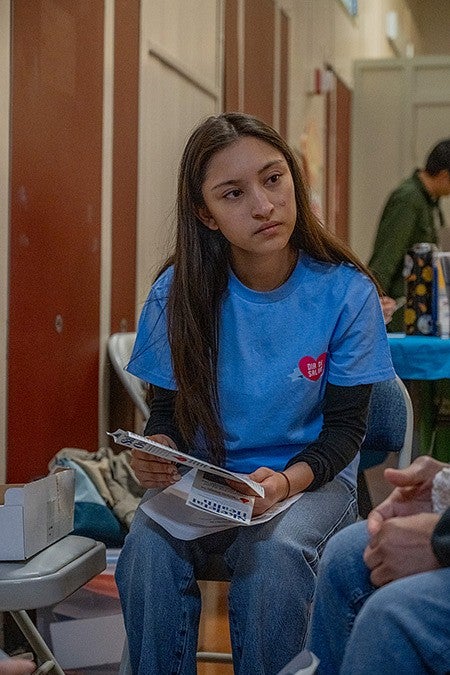
Empathy and understanding also appear in Muñiz Sanchez's classwork. In Gerritsen’s CHC colloquia class, “Unintended Consequences,” professionals from a wide range of career fields share a hypothetical effect of a social issue on their area of study for discussion.
“Every time, no matter who talked, she came up with some really well-thought-out and pretty deep and probing questions,” Gerritsen says. “It often had to do with the ethics of it, fairness, equity. It really shows how much she cares.”
In a field like neuroscience, Muñiz Sanchez expressed gratitude for the multidisciplinary nature of her Honors College classes. “I feel like the Honors College is good at improving your critical thinking,” she says. “It’s opening your view of your everyday life.”
After graduation, she heads back home to Ciudad Juárez. She’ll spend time with family while waiting to hear back about her visa status before beginning work in the U.S. She has her sights set on a role as a medical assistant at a children’s hospital in El Paso, Texas, and expects to hear more about the opportunity this summer. In the meantime, she’ll be preparing for the MCAT exam and continuing her research as an extension of her thesis.
Working in pediatrics will give this aspiring doctor a chance at dismantling the same kind of barriers to understanding the medical world that she faced as a child. And she hopes to spend time with her sisters. “I’m really excited to be back with my family,” she says. “Just being near my sisters again will be incredible.”

